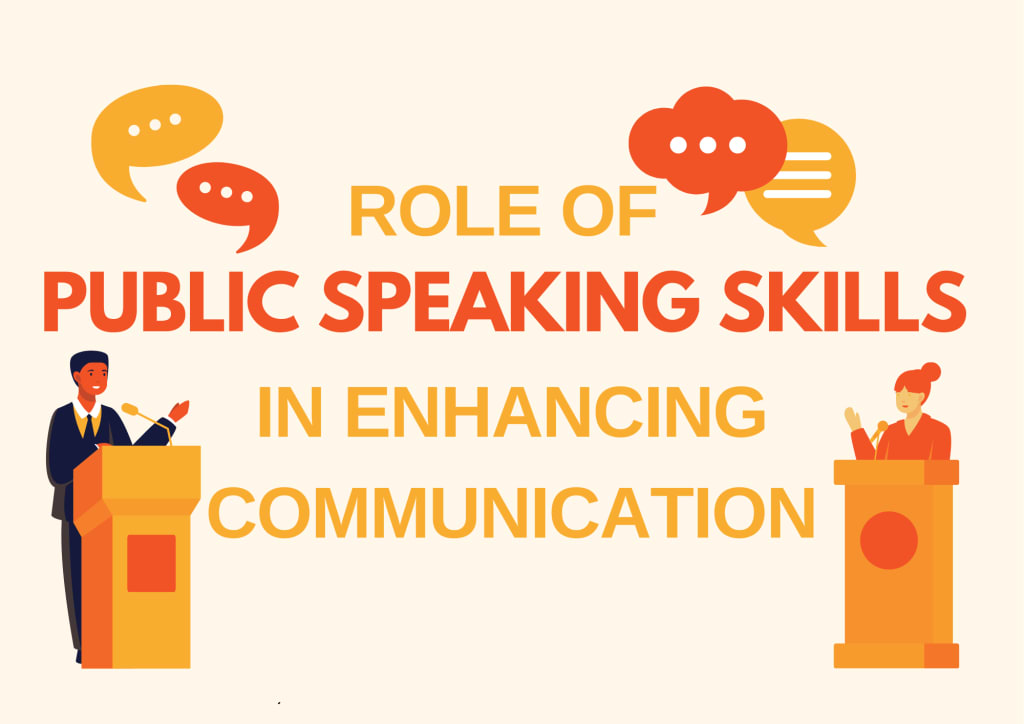The Role of Debate and Public Speaking in Enhancing Communication Skills
Public Speaking Skills

Public speaking skills are an invaluable asset in today's world, fostering effective communication, confidence, and critical thinking. Within the context of school education, these skills take on even greater importance, as they lay the foundation for students to excel in various aspects of their academic and future professional lives.
Engaging in debates and public speaking activities in school not only enhances students' communication abilities but also cultivates their analytical skills and boosts their self-esteem. Read more at https://blog.edu123.in/role-of-public-speaking-skills-in-communication/
The Importance of Public Speaking Skills in School Education
Public speaking skills are crucial for students as they navigate through their educational journey. These skills enable students to articulate their thoughts clearly, present ideas convincingly, and engage with their audience effectively. Schools that emphasize public speaking as part of their curriculum help students develop the confidence to express themselves, which is essential for academic success and personal growth.
Developing public speaking skills in a school setting provides students with a safe environment to practice and refine their abilities. This practice is vital because it prepares students for various real-life situations, such as job interviews, presentations, and public engagements, where effective communication is key to success.
Benefits of Debating for Enhancing Communication Skills
Debate is a structured form of argumentation that requires participants to research, prepare, and present their viewpoints on a given topic. Participating in debates helps students enhance their public speaking skills in several ways:
- Critical Thinking and Analysis: Debating requires students to think critically about different aspects of a topic, analyze information from multiple perspectives, and develop coherent arguments. This process sharpens their analytical skills and enhances their ability to communicate complex ideas clearly.
- Research Skills: To present a strong argument, students must gather relevant information and evidence to support their points. This research process improves their ability to find, evaluate, and utilize information effectively.
- Persuasive Communication: Debates require students to persuade their audience and opponents using logical reasoning and compelling evidence. This practice hones their persuasive communication skills, which are essential for effective public speaking.
- Listening and Responding: During a debate, students must listen carefully to their opponents' arguments and respond thoughtfully. This active listening and quick thinking improve their ability to engage in meaningful conversations and address counterarguments effectively.
- Confidence Building: Regular participation in debates helps students overcome the fear of public speaking. As they gain experience, their confidence grows, enabling them to speak more assertively and with greater conviction.
Incorporating Public Speaking and Debate in School Curriculums
Integrating public speaking and debate activities into school curriculums can significantly enhance students' communication skills. Here are some effective ways to incorporate these activities:
- Classroom Presentations: Encouraging students to present their projects and assignments to the class helps them practice public speaking in a supportive environment. Teachers can provide constructive feedback to help students improve their presentation skills.
- Debate Clubs: Establishing debate clubs allows students to engage in regular debates on various topics. These clubs provide a platform for students to practice their debating skills and receive guidance from experienced coaches.
- Public Speaking Workshops: Organizing workshops focused on public speaking skills can help students learn techniques for effective communication, such as voice modulation, body language, and audience engagement.
- Inter-School Competitions: Participating in inter-school debate and public speaking competitions exposes students to different styles of argumentation and broadens their perspective. These competitions also provide valuable opportunities for students to showcase their skills and gain recognition.
- Role-Playing Activities: Role-playing exercises, where students take on different characters and present their viewpoints, can be an engaging way to develop public speaking skills. These activities encourage creativity and help students practice speaking in front of an audience.
Real-Life Applications of Public Speaking Skills
The benefits of developing public speaking skills extend beyond the classroom. Here are some real-life applications where these skills are invaluable:
- Academic Success: Students with strong public speaking skills often perform better in oral exams, group discussions, and class participation. These skills enable them to articulate their knowledge effectively and stand out in academic settings.
- Career Advancement: In the professional world, public speaking skills are essential for career growth. Whether it's presenting a project, leading a meeting, or speaking at a conference, the ability to communicate effectively is crucial for success.
- Leadership Roles: Effective leaders are often excellent public speakers. The ability to inspire and motivate others, articulate a vision, and communicate clearly are key traits of successful leaders.
- Personal Development: Public speaking skills contribute to overall personal development by building confidence, improving self-esteem, and enhancing interpersonal communication. These skills enable individuals to express themselves more effectively in various social situations.
About the Creator
Enjoyed the story? Support the Creator.
Subscribe for free to receive all their stories in your feed. You could also pledge your support or give them a one-off tip, letting them know you appreciate their work.





Comments
There are no comments for this story
Be the first to respond and start the conversation.